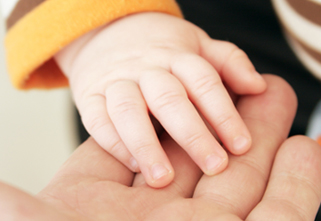The objections are as ugly as they are predictable.
“Jesus said we will always have the poor with us. If He says we can’t actually eliminate poverty, why bother trying?”
“If they are poor, they must be lazy. They made their bed, now they can lie in it.”
“Why help foreigners when our own people need help?”
I’ve heard them over and over since I first expressed a desire to teach English in China during a summer job. My college-aged coworkers couldn’t understand how I could consider leaving the good ol’ U. S. of A. I heard the objections again when I traveled to Bolivia last year and again when I flew to Sri Lanka last month.
It’s disheartening to hear these tired old arguments over and over. It breaks my heart to hear such hard-hearts, such lack of compassion, such refusal to obey the commands of God. I try to understand. I know these objections come from incomplete or misguided readings of Scripture, political sound bites, insulation from and ignorance of the poor, and our own selfishness and greed. Toddlers aren’t the only ones who don’t like to share.
Rather than cry or rant or give up on humanity as I am wont to do, I choose to confront these arguments again. Instead of simply debating them, I have five challenges for you and for me.
Five ways we must stop failing the poor, each other and our God.
- Get out of the nest and get on the ground. Go see the conditions of both the U.S. poor and the international poor first-hand. Understanding the complexities of poverty and aid requires seeing the conditions, listening to the stories, smelling the lack of sanitation, tasting what passes for food and giving attention and care to neglected children and adults.
- Stop misinterpreting the verse “The poor you will always have with you” as a statement that poverty is the status quo and an excuse to ignore them. To do so is to take a single phrase completely out of its original context. This passage is about worship, not charity. Incidentally, have you ever read the parallel verse? Most people quote Matthew 26:11. Mark follows the phrase with this one: “and you can help them any time you want.”
Jesus assumes we will help the poor.
Don’t make the mistake of claiming a single phrase negates the myriad of commands throughout the Old and New Testament to help the poor, defend the widows and orphans, and give generously. Here are three of many.
– Isaiah 1 - Reject the false notion that the poor are predestined to be poor. This kind of fatalism is basically a caste system and it has no place among Christians. We are all equal in the eyes of God, as we read in Galatians 3:28: “There is neither Jew nor Greek, there is neither slave nor free, there is no male and female, for you are all one in Christ Jesus.”
- Acknowledge that even in those cases in which poverty is a consequence of “sin” or “foolish choices,” God doesn’t give us an out. God never tells us to help only those who deserve it. God commands us to help (see the above verses if you question that). Before you whine, “That isn’t fair,” remember this: God poured grace on us before we deserved it, before we knew better, and even now when we defy clear commands and do what we want to do. God keeps forgiving, keeps loving, keeps helping us get back up on our feet and try again. We are to be imitators of God. Therefore, we ought to pour out God’s vulgar grace on everyone, especially those who don’t deserve it. They are just like us. They may not deserve it, they may not respond the way we want them to, but we do it anyway because that’s what God did for us. As God’s workmanship, created in Christ Jesus to do good works, we are to be God’s hands and feet.
“God loves us as we are, not as we should be, because none of us are as we should be.” Brennan Manning
Making real change is messy and complicated and requires engaging with people. Standing back and throwing money into a situation rarely (maybe never) solves the root problems. It makes things worse. Read “When Helping Hurts: How To Alleviate Poverty Without Hurting the Poor … and Yourself” before taking any action, whether in your town or across the world.
- Recognize people’s spiritual needs aren’t the only real, valid needs; we need to meet physical needs too and often first. Sometimes people object to humanitarian aid because they say a person’s eternal destiny is more important than this life. This ignores the work of Jesus to reconcile and restore this physical world. Jesus healed the sick, he made water into wine, he pulled a coin out of a fish’s mouth to pay taxes. Jesus never taught that the physical world is irrelevant or secondary. Physical needs like food, safe drinking water, medical care and jobs are real and important too. If you’ve ever been hungry or tired or sick or thirsty, you know how that overtakes your entire being. It’s impossible to think straight, let alone consider abstract concepts like sin and mercy and faith. Jesus met people’s physical needs first or at the same time He addressed spiritual needs.
What it all boils down to is the uncomfortable and inconvenient truth we are accountable by God to help those in need. We are our brother’s and sister’s keepers. Jesus won’t accept your excuses that it was hard and smelly and unfulfilling, or that you thought someone else would do it, or that what you want is more important than the life-or-death struggle of people in poverty.
We are to love, as Jesus loved us. 1 John 3:16-18: This is how we know what love is: Jesus Christ laid down his life for us. And we ought to lay down our lives for our brothers and sisters. If anyone has material possessions and sees a brother or sister in need but has no pity on them, how can the love of God be in that person? Dear children, let us not love with words or speech but with actions and in truth.
Poverty isn’t a simple problem. It doesn’t have a simple solution. But we can, indeed we must, do better.
Bonus challenge
I know many of you are very active in meeting needs in your communities and around the world. But many of you are not. I’d like to challenge those of you who haven’t found a way to help the poor yet—sponsor a child. I have 10 boys from Sri Lanka who need sponsors. Can we take care of them as an online community? (Why boys? Here’s why.)
Click the names below to view their information, then click “Read My Story” under the photo for more. When you sponsor one of these boys, email me at joy at joyinthisjourney dot com so I can update the list. Note: If you try to sponsor a child and get an error, it means that child has already been sponsored (and I haven’t had a chance to update the list yet). Use this link instead.
Maharoof, 8-year-old boy
Krishal, 8-year-old boyAbeetha, 8-year-old boy Sponsored!
Kavindu, 8-year-old boy
Hansa, 8-year-old boy
Shiron, 8-year-old boy
Imramul, 8-year-old boy
Divasan, 8-year-0ld boy
Supun, 8-year-old boy
Susitha, 8-year-old boy













